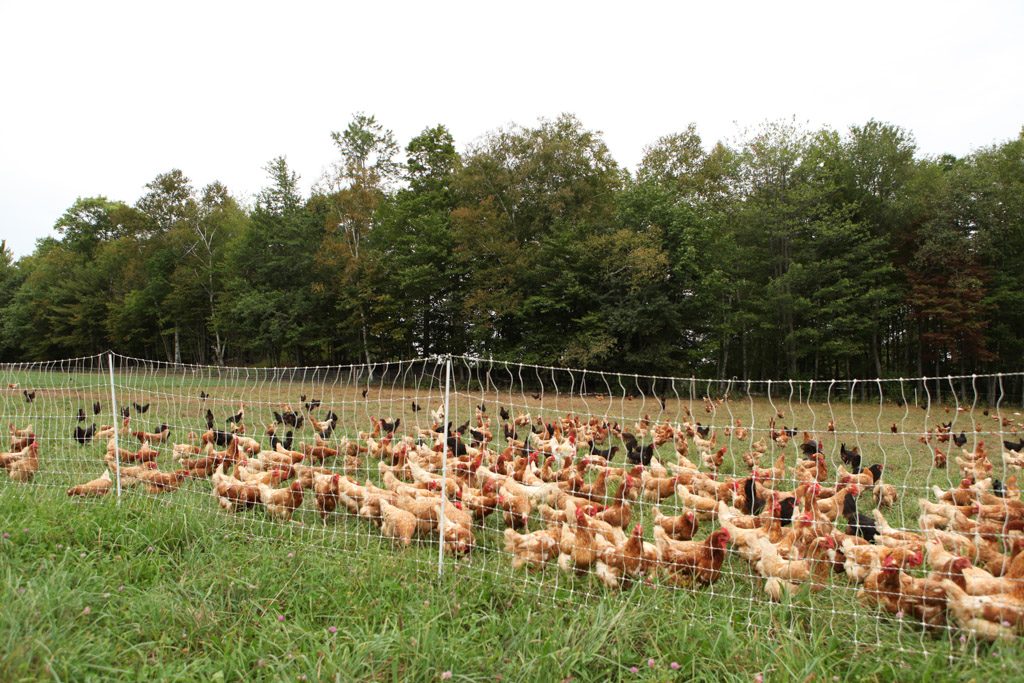
More and more people are wanting to raise chickens ~ for some people as a means to provide income, and for others just to enjoy them and have fresh eggs. But no matter where you raise them, whether you are in a suburban neighborhood or in a rural landscape, predators will be present. That is why ELECTRIC NETTING is a great resource. The following information is shared by Wellscroft Fencing in New Hampshire. They have personal experience with what they are sharing here ~ they are farmers, too..
Electric netting is one of the fastest, easiest, and most versatile types of fence available. It is widely used to confine just about any livestock as well as protect a vast array of crops from a host of predators. Netting is a great temporary fencing option and is an excellent choice for anyone farming on rented land, preferring to shift their grazing areas, or that does not want to invest in a permanent fence.
How electric netting works: One of the nicest benefits of electric netting is it is quick and easy to set up and move. Most netting is made from a poli-conductor horizontal strand tied or bonded to a polyethylene string or plastic vertical strut which holds each intersection in place.
A hollow PVC post with steel spike is inserted at various intervals in the net depending on its type (some are spaced closer together to better support the weight of the netting). The size of the netting grid, height, length, type of conductor, post size, and spike type are all considered for the animal that is to be kept in or out. Once you set up your netting, install a ground rod and energizer for it to be effective. It is recommended that netting never be left unenergized.
Finally, know that netting is very effective for all seasons, except in areas where winter brings plenty of snow. Netting does not hold up to snow, and wildlife standing on that snow will not receive an electrical shock, as they cannot be grounded.
If any of your farm animals are out in the winter, you must use a woven wire fence, with an electrified wire at the top of the fence. In this instance, as the wildlife climb the fence to get over, they will be grounded when they touch the electrified wire.
Photos and information provided by Wellscroft Fencing in New Hampshire

